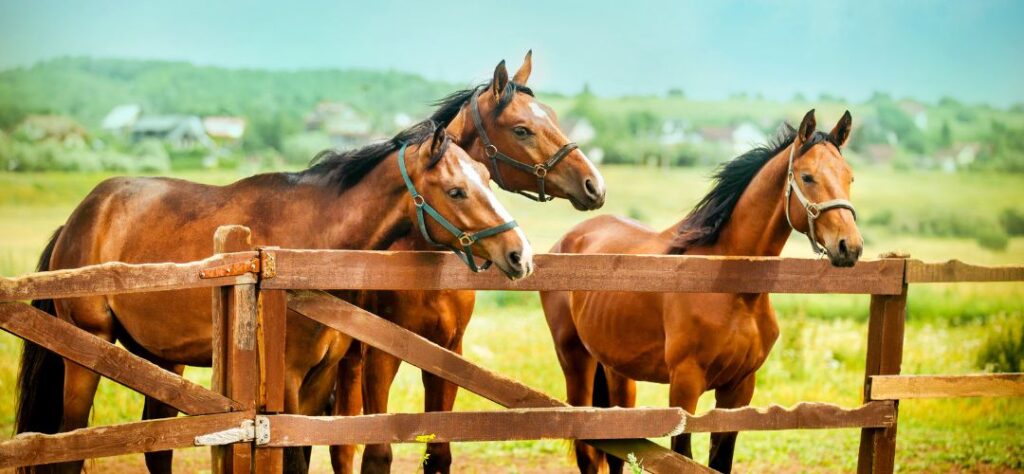Have you ever struggled to put weight on your horse? Is your horse a hard keeper, no matter how much you feed them? If so, you may need to consider a high-calorie supplement or feed to help your horse reach and maintain a healthy weight. In this guide, we will explore the factors to consider when choosing the best high-calorie options for your horse, the top ingredients to look for, how to adjust feed based on your horse’s needs, and how to monitor weight gain and overall health.
Factors to Consider When Choosing High-Calorie Options
When it comes to choosing the best feed for your horse, there are a few key factors to consider. First and foremost, you want to ensure that the high-calorie feed you select is specifically formulated to help with weight gain and overall condition. Look for feeds high in protein and fat content, as these nutrients are crucial for muscle development, body condition, and energy levels.
It’s also important to consider your horse’s age and activity level. Younger horses may require a different type of feed than older horses or those in heavy work. Consider any dietary restrictions or sensitivities your horse may have, such as starches, sugar, or digestive issues.
Another important factor to consider when selecting a high-calorie feed is the quality of ingredients. Opt for feeds that contain high-quality sources of protein, such as soybean meal or alfalfa, and healthy fats like soybean oil or flaxseed. Avoid feeds with excessive amounts of fillers or additives that may not provide the necessary nutrients for healthy weight gain.
Consider the feeding schedule and portion sizes when introducing a new high-calorie feed to your horse’s diet. Gradually transition your horse to the new feed to prevent digestive upset, and monitor their weight and body condition regularly to ensure they are responding well to the new diet. Adjustments may need to be made based on your horse’s individual metabolism and response to the feed.
Top Ingredients to Look for in High-Calorie Horse Feed
When browsing the options in your local feed store, it’s essential to know which ingredients to look for in a high-calorie horse feed. Firstly, fibers such as beet pulp and grains such as corn, oats, and barley are excellent sources of energy and can help your horse pack on the pounds. While the fiber is a source of lower starch, it is easily fermentable, allowing for a cooler energy source and high digestibility. The grains are high in carbohydrates, which provide the fuel needed for weight gain.
In addition to grains, fats such as soybean oils are incredibly beneficial for weight gain. Fats contain more calories per unit of weight than carbohydrates or proteins, making them an excellent addition to any feed. Look for feeds containing high-quality fat sources, such as soybean or flaxseed.
Another key ingredient to consider when selecting a high-calorie horse feed is protein. While carbohydrates and fats are essential for weight gain, protein is crucial for muscle development. These protein sources will help support muscle growth as your horse gains weight.
It’s important to pay attention to the vitamin and mineral content of the high-calorie horse feed. A well-balanced feed should contain essential vitamins and minerals such as vitamin E, selenium, and zinc to support overall health and well-being. These nutrients are vital in maintaining your horse’s immune system and promoting proper digestion.
Adjusting the Feed Based on Individual Horse’s Needs
Some horses may require more calories and fat than others to gain weight effectively. Regularly monitoring your horse’s condition and weight is vital to ensure they receive the appropriate amount of feed.
If you notice that your horse is not gaining weight as desired, you may need to increase the amount of feed they receive. However, it’s crucial to do so gradually to prevent digestive upset or other health complications. On the flip side, if your horse is gaining weight too quickly or becoming overweight, you may need to reduce the amount of feed or switch to a lower-calorie option.
Another factor to consider when adjusting your horse’s feed is their activity level. Horses in heavy work or training may require more calories to support their energy needs, while mostly sedentary horses may need less. It’s essential to strike a balance between providing enough energy for your horse to thrive without overloading them with excess calories.
The quality of the feed you provide plays a significant role in your horse’s overall health and weight management. Ensuring your horse has access to fresh, high-quality hay and pasture can make a difference in their nutritional intake. Supplementing their diet with specialized feeds designed for weight gain can also be beneficial.
Monitoring Weight Gain and Health on a High-Calorie Feed Regimen
Regularly weigh your horse using a scale or weight tape to track their progress. Keep in mind that weight gain should be slow and steady, as rapid weight gain can be detrimental to your horse’s health.
In addition to monitoring weight, pay close attention to your horse’s overall health. Are they maintaining a healthy coat condition? Are their energy levels consistent? Are they drinking and urinating normally? These factors can help gauge your horse’s well-being and ensure that the feed program is working effectively.
Choosing the best high-calorie feed for your horse is crucial for weight gain and overall condition. Consider the factors discussed, such as age, activity level, and dietary restrictions, when making your selection. Look for feeds that contain essential ingredients like highly digestible fibers, grains, and fats to help your horse achieve and maintain a healthy weight. Remember to adjust the feed based on your horse’s individual needs and monitor their weight gain and overall health. You can help your horse reach their optimal weight and thrive with the right feed and proper monitoring.


